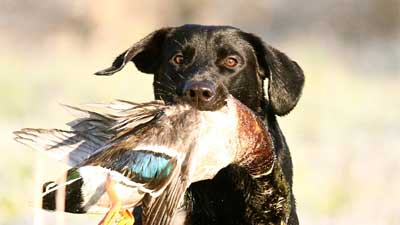- Size
- Smallest
- Small
- Small to Medium
- Medium
- Large
- Giant
- Characteristics
- Smartest
- Hypoallergenic
- Fluffy
- Best Guard
- Best Family
- Best for Kids
- Low Shedding
- Healthiest
- Police Dogs
- Most Calm
- Quietest
- Color
- White
- Black
- Grey
- Brown
- Blue
- Red
- Coat
- Hairless
- Short
- Long
- Origin
- Japan
- China
- Australia
- Germany
- Italy
- United States
- France
- Group
- Hound
- Terrier
- Herding
- Toy
- Working
- Sporting
Long-nosed vs. Short-nosed dog breeds — Which one is better?

When people think of dogs, they often first think of the "common" dog breeds or those that are seen frequently. For instance, Golden Retrievers, Beagles, Labrador Retrievers, and German Shepard (to name a few) come to mind. This is what most people would consider standard dogs. But have you ever considered the difference between short nose and long nose dog breeds? If not, all you need is a little more information on this topic, and your questions will be answered.
Which dog breed is better - long-nosed dogs or short-nosed dogs? There's a lot of debate about this question, and these two types of dogs have unique characteristics. So I'll give you my opinion on who comes out as the best dog breed!
Short-Nosed Dog Breeds
These dogs are called brachycephalic, meaning “short-headed.” They have broad heads, shortened snouts, and often appear flat-faced. Short-nosed breeds were also originally bred for hunting purposes. Their smaller size made them ideal for chasing down smaller prey in tight spaces.
The following is a list of brachycephalic dog breeds:
- • French Bulldogs
- • Bulldogs
- • Boston Terriers
- • Boxers
- • Pugs
- • Bullmastiffs
- • Shih Tzus
Short-nosed dogs have a few health concerns
Short-nosed dogs, also known as brachycephalic breeds, are prone to a number of health problems because of their shortened snouts.
Brachycephalic airway syndrome is a condition affecting short-nosed dogs. These dogs have difficulty breathing due to the shape of their head and faces. Signs of this condition include snoring, loud breathing, exercise intolerance, and sleep apnea. Untreated, brachycephalic airway syndrome can lead to heart problems and respiratory failure.
Another concern for short-nosed dogs is their inability to regulate body temperature. To protect them during hot weather, keep an eye on them and make sure they have access to plenty of water.
Lastly, short-nosed dogs are more likely to develop dental problems due to their crowded teeth. This can lead to gum disease and other oral health issues if they aren't cared for properly.
Long-Nosed Dog Breeds
The first thing you should know about long-nosed dogs is that they were bred not only to herd livestock and guard property but also to track and hunt. This is because their noses are much better at picking up scents than shorter-nosed dogs.
Dogs with long noses have more specialized cells to help track scents than dogs with shorter faces. This is why these dogs are better at tracking than those with shorter faces. Also, these dogs' noses help them regulate their body temperature better in hot climates and make it easier for them to put their noses to work.
The following are examples of dog breeds with long noses:
- • Retrievers
- • German Shepherds
- • Beagles
- • Dachshunds
- • Pointers
- • Bloodhounds
- • Whippets
Long-nosed dogs have a few health concerns
Some of the most common health problems found in dogs with long noses are allergies. Allergies can be caused by a variety of things, including food allergies, environmental irritants, and even certain medications.
Dogs with long noses are more prone to certain infections of the lungs. One such infection is caused by a fungus called Aspergillus, which is commonly found in soil. The best way to prevent your dog from breathing in this mold is to keep all food dishes clean and avoid your pet being around poor air conditions, like when gardening with damp soil.
Another thing to be aware of is Kennel Cough, a common respiratory infection. You can help prevent your dog from getting it by keeping him away from other dogs who are sick and by making sure that he gets vaccinated. If you think your dog has either of these diseases, please take him to the vet immediately.
Additionally, there are benign tumors and cancers in the nose of dogs that are less prevalent but just as serious, and long-nosed dog owners should be aware of these as well.
What kind of dog is right for you?
Overall, the choice to adopt a dog with a longer snout or shorter snout is up to you, as it’s safe to say that each breed has its fair share of advantages and disadvantages. Well, it’s important to be aware of the health conditions of both long-nosed and short-nosed dogs and their histories.
To make sure your pet lives a long life, you should ensure that they get regular checkups from the vet and follow a healthy diet and exercise routine. Being proactive about your pet’s health can help them live a longer and healthier life.
You May Also Like
 Breed ComparisonLabradoodle vs. Goldendoodle: Which Is Better?
Breed ComparisonLabradoodle vs. Goldendoodle: Which Is Better? Best Hunting Dogs10 Dog Breeds That Make The Best Hunting Companions
Best Hunting Dogs10 Dog Breeds That Make The Best Hunting Companions Breed ComparisonMaltese vs. Shih Tzu: Which Is Better?
Breed ComparisonMaltese vs. Shih Tzu: Which Is Better? Breed ReviewsTeacup Dogs Everything You Need to Know
Breed ReviewsTeacup Dogs Everything You Need to Know Breed Reviews10 Most Common Black Dog Breeds
Breed Reviews10 Most Common Black Dog Breeds Breed Reviews10 Most Common White Dog Breeds
Breed Reviews10 Most Common White Dog Breeds